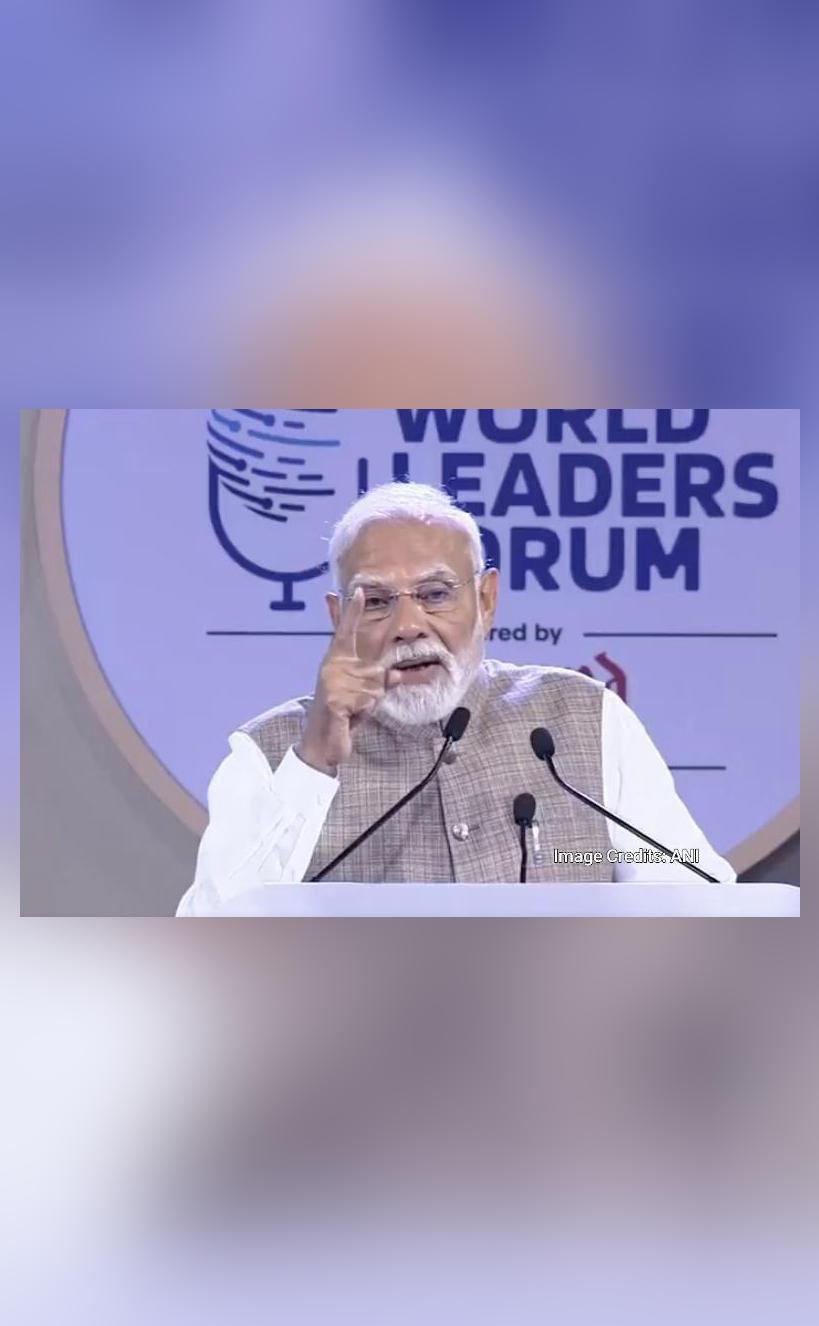
We’re not people who sit on banks of stagnant water & throw pebbles: PM
In a recent address at the ET World Leaders Forum 2025, Prime Minister Narendra Modi emphasized India’s ability to drive global growth out of a slow pace. He highlighted the country’s focus on reform, performance, and transformation, stating that India is in a unique position to make a significant impact on the world economy.
PM Modi’s address comes at a time when the global economy is facing numerous challenges, including slow growth rates, trade tensions, and climate change. In the face of these challenges, the Prime Minister emphasized the need for countries to work together to find solutions and drive growth.
“We’re not the people who sit on the banks of stagnant water and throw pebbles,” PM Modi said, referring to India’s approach to tackling economic challenges. “We are the people who can turn a fast-flowing stream into a mighty river.”
The Prime Minister’s remarks were met with applause from the audience, which included global leaders and business executives. His message of hope and optimism resonated with the audience, who were eager to hear about India’s vision for the future.
So, what does PM Modi’s statement mean for the global economy? To understand this, let’s take a closer look at India’s economic growth story.
India’s Economic Growth Story
India’s economic growth story is one of remarkable transformation. Over the past few decades, the country has made significant progress in terms of economic growth, poverty reduction, and infrastructure development. The country’s GDP has grown from $500 billion in 2000 to over $3 trillion today, making it the third-largest economy in the world.
India’s economic growth has been driven by a combination of factors, including economic reforms, technological advancements, and a young and educated workforce. The country’s government has also played a crucial role in driving growth, through initiatives such as the “Make in India” campaign, which aims to increase foreign investment and promote domestic manufacturing.
Reform, Perform, Transform
PM Modi’s address emphasized the importance of reform, performance, and transformation in driving economic growth. The Prime Minister has made significant efforts to reform India’s economy, including the implementation of the Goods and Services Tax (GST), the Insolvency and Bankruptcy Code (IBC), and the Real Estate Regulation Act (RERA).
These reforms have had a significant impact on the economy, including an increase in foreign investment, a reduction in corruption, and an improvement in the business environment. The government has also taken steps to promote performance, including the launch of initiatives such as the “Startup India” program, which aims to promote entrepreneurship and innovation.
Transformation is another key area that PM Modi has emphasized. The Prime Minister has made significant efforts to transform India’s economy, including the launch of initiatives such as the “Digital India” program, which aims to promote digital literacy and increase access to digital services.
What’s Next for India?
So, what’s next for India? PM Modi’s address at the ET World Leaders Forum 2025 provided some insight into the government’s vision for the future. The Prime Minister emphasized the need for countries to work together to find solutions to global challenges, including climate change, trade tensions, and economic inequality.
The government has also announced plans to increase foreign investment, promote entrepreneurship, and drive innovation. The launch of initiatives such as the “Make in India” program and the “Startup India” program are expected to play a key role in driving growth and creating jobs.
Conclusion
PM Modi’s address at the ET World Leaders Forum 2025 was a powerful reminder of India’s potential to drive global growth. The Prime Minister’s emphasis on reform, performance, and transformation is expected to play a key role in shaping the country’s economic future.
As the global economy continues to face challenges, India’s focus on economic growth and development is more important than ever. The country’s ability to drive growth and create jobs is critical to the well-being of its citizens and the global economy as a whole.






